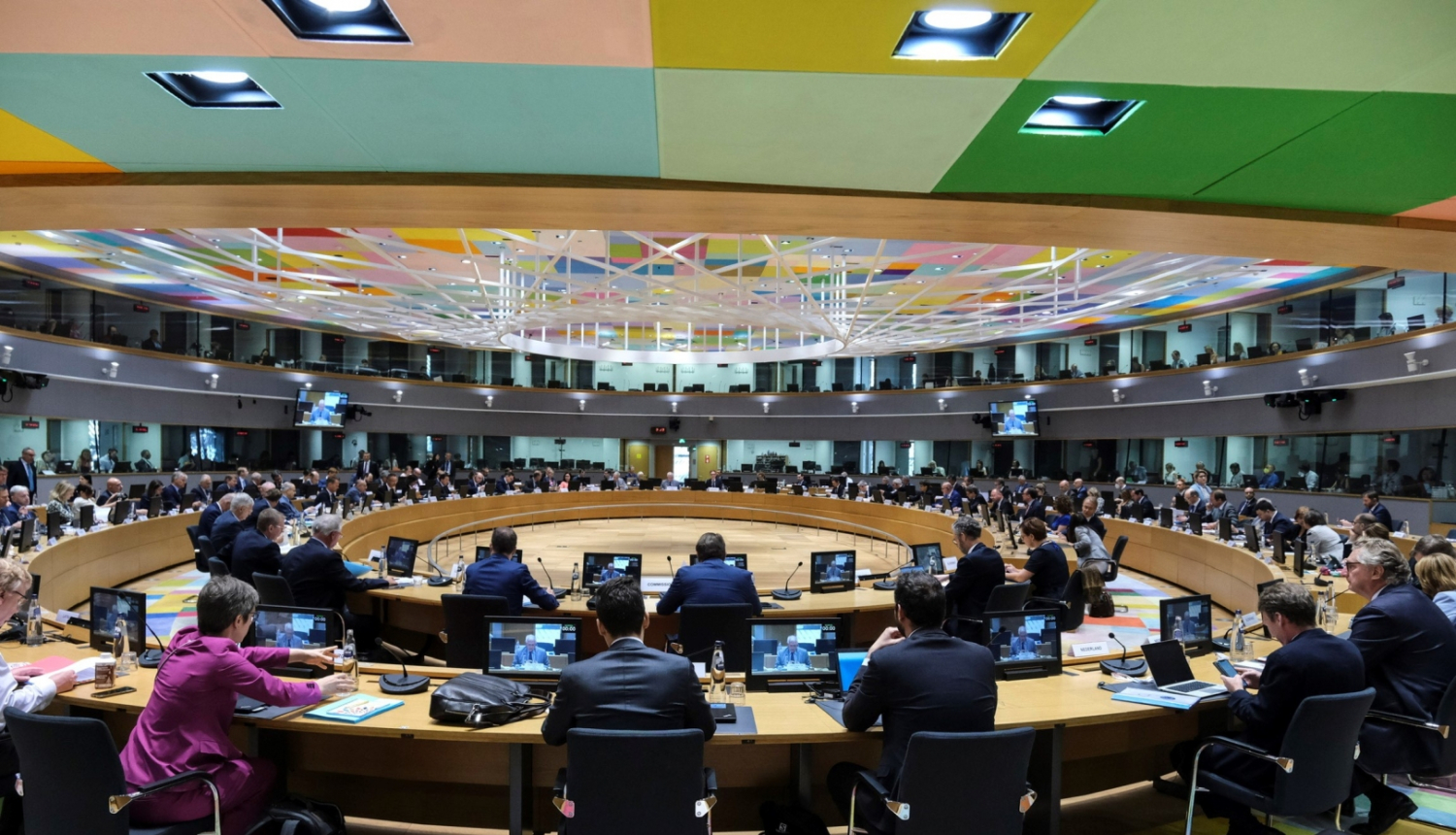On 18 July 2022, the Minister of Foreign Affairs, Edgars Rinkēvičs, took part in the meeting of the Foreign Affairs Council of the European Union in Brussels, Belgium, during which participants discussed Russia’s aggression against Ukraine, relations between the EU and Latin America and the Caribbean, and digital diplomacy.
Edgars Rinkēvičs affirmed the need to work on preparing the EU’s seventh sanctions package against Russia and Belarus. In the meantime, it is necessary to continue the implementation of the current sanctions and to work on eliminating their shortcomings.
“We must not forget about the co-responsibility of the Belarusian regime in Russia’s war in Ukraine. We must work to prepare and approve the next round of sanctions against Belarus. We must continue to provide all the necessary support to Ukraine, especially in the form of military aid and through the European Peace Facility. We support the approval of the fifth tranche of military aid to the Ukrainian Armed Forces,” Edgars Rinkēvičs underlined.
The Minister of Foreign Affairs stressed that coordinated communication and active political dialogue with the international community are necessary for maintaining a united position against Russia’s aggression in Ukraine. “The European Union and its Member States must support the countries most affected by the food crisis caused by Russia through providing them with direct food relief, thus expressing our solidarity and ensuring the support of these countries for the European Union’s position against Russia’s invasion of Ukraine. This would also contribute to reducing potential migration flows in the European Union that would inevitably be caused by a significant deterioration of the situation,” the Minister emphasized.
“In international efforts to restart Ukrainian grain exports, Ukraine’s interests and security considerations must be taken into account. Russia must compensate Ukraine for all damages caused by its aggression, including taking responsibility for the destruction of Ukraine’s economy and infrastructure,” Rinkēvičs stated.
The Minister declared that the EU needs to develop a legal framework for the confiscation and transfer of frozen Russian assets to Ukraine as part of rebuilding efforts. Rinkēvičs expressed his support for the reconstruction process and further reforms in Ukraine, which must commence immediately, especially considering that the new school year and winter are coming up.
During the meeting, the Council held a discussion on digital diplomacy, and the Council’s Conclusions on EU Digital Diplomacy were subsequently adopted. Edgars Rinkēvičs stated that digital diplomacy in the EU should defend the interests and values of the EU, as well as promote global digital governance norms based on mutual respect for international law, human rights and fundamental freedoms, which contribute to sustainable development and prevent emerging security threats around the world. The European Union must provide support for the protection of Ukraine’s digital infrastructure and ensure access to the internet in the territories occupied by the Russian Federation.




